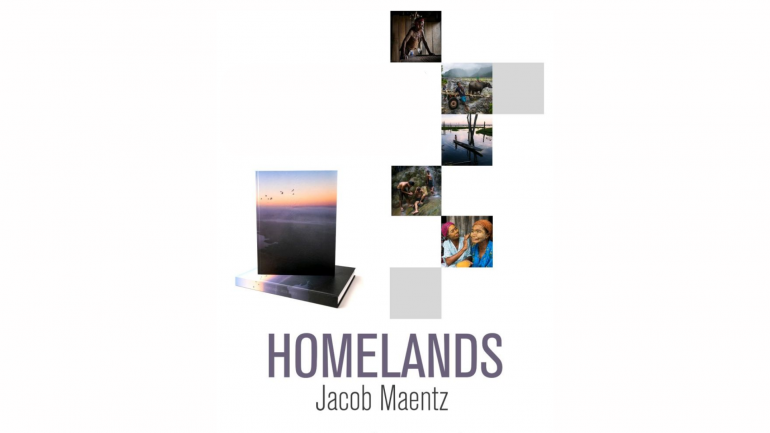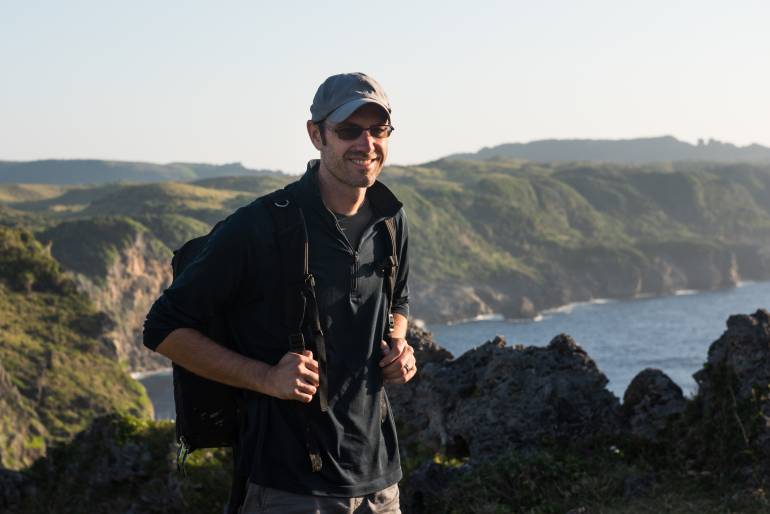American documentary photographer to launch "Homelands" about the Philippines' indigenous people

The American documentary photographer Jacob Maentz will launch his book "Homelands", which narrates Indigenous stories about the relationship between people and place and why that is important.
The book will be released on August 16–20 at the Astbury in Poblacion, Makati, Philippines.
In an online interview with Radio Veritas Asia News, he said he studied conservation biology at Colorado State University and came to the Philippines as a Peace Corps volunteer in 2003.
He now resides in Cebu City with his family and is a project photographer with Blue Earth Alliance, a community of professionals that supports visual storytelling on critical environmental and social issues.
"Homelands" is a large photography book with 218 images that takes one on a visual journey through the landscapes and Indigenous communities of the archipelago.
"In the Philippines, Indigenous peoples make up more than 160 diverse ethnolinguistic groups and are said to belong to the environmental frontline: holding the line against irreversible ecological devastation," said Maentz.
"When the Indigenous say that ‘Land is life,’ they mean it as a rallying cry. To fight for the land is to fight for life—not just Indigenous lives, but all the lives that depend on their ecological services," he said.
"When Indigenous communities resist the exploitation of their homelands, they are protecting their very existence. They are insisting that their way of life matters; that the land matters, in and of itself. Our Indigenous communities are our leaders. They are at the frontlines of extinction, but also of change," said Maentz.
"If you are interested in pre-colonial Philippines and want to engage at a deeper level there is a series of 18 essays which brings in more understanding and context. It could simply be a beautiful coffee table book or be used as an inspired education resource," said Maentz.

"There is such diversity among the different Indigenous groups in the Philippines - this is a beautiful thing and something that should be celebrated. Imagine in some places entirely different languages can be found from one valley to the next only separated by a mountain," he said.
"The resilience of our ecosystems actually relies on the diversity of our cultures. For thousands of years, oral traditions, cultural practices, and knowledge have been passed through generations of Indigenous communities to preserve their local environments," said Maentz.
"Although Indigenous communities are diverse in their ways and knowledge, a strong sense of community and relationship with the land is something they share in common. This Indigenous relationship with the land is the common thread throughout Homelands," he said.
Maentz said he is most happy with the collaborative process that happened in producing the book. Over the course of the pandemic, about two and a half years, his team spent more than 100 hours in conversation listening to indigenous leaders, youth, activists, and academics, which guided the series of essays in the book.
"By slowing down and creating more space, the scope of the book really changed for the better," he said.
He said the book brought together a talented and creative team, including writers and editors Nicola Sebastian, Gabriel Malvar, Neen Sapalo, and Anna Canlas, artists Kristine Caguiat, Cian Dayrit, Raxanne Maniquiz and Jo Tanierla, researcher manager Saree Gloria, photo editor Mike Davis, lithographer Sebastiaan Hanekrootbook; and book designer Sybren Kuiper (SYB).
The book has its share of challenges. "I self-published this book as it allowed complete creative control and also provided a way to give back, with proceeds going to Project Katutubong Pilipino and Indigenous youth scholarships," he said.
"It's been a steep learning curve self-publishing a book of this magnitude, with lots of challenges throughout the process, even until now. From funding, production, and distribution. I am thankful for what it has taught me and I know all of the work and dedication we put in shine on the pages of the book," said Maentz.
During the book launch this month, there will be a series of talks and an exhibition of photographs, all of which are free. Details are at https://philippines.eventbrite.com.
Indigenous peoples advocate Dr. Carole Diamante commends Maentz's book.
"The book is a useful documentation of forgotten homelands in the Philippines. It can be used as a basis for the Department of Environment and Natural Resources in cases of the absence of definite boundaries because, in the coming years, dams and industrial zones are projected to be in the ancestral domains," said Diamante.
Radio Veritas Asia (RVA), a media platform of the Catholic Church, aims to share Christ. RVA started in 1969 as a continental Catholic radio station to serve Asian countries in their respective local language, thus earning the tag “the Voice of Asian Christianity.” Responding to the emerging context, RVA embraced media platforms to connect with the global Asian audience via its 21 language websites and various social media platforms.














